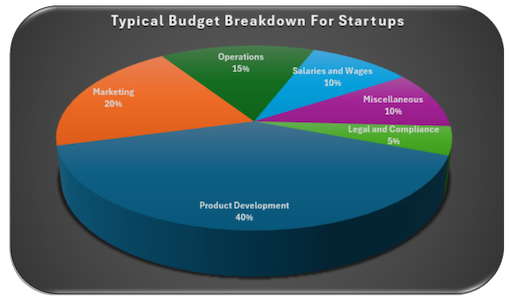Transitioning from Employee to Entrepreneur: A Comprehensive Guide

Making the leap from employee to entrepreneur is an exciting yet challenging journey. It requires a shift in mindset, skills, and daily routines. This blog will guide you through the transition with practical tips, real-life examples, and visual aids to help you navigate this significant change.
Understanding the Transition
Transitioning from an employee to an entrepreneur involves moving from a structured environment with set tasks and expectations to a dynamic, self-driven role where you set the goals and strategies. Here are some key differences:
| Aspect | Employee Role | Entrepreneur Role |
|---|---|---|
| Work Structure | Predetermined tasks and schedules | Self-determined tasks and schedules |
| Income | Fixed salary | Variable income dependent on business success |
| Decision Making | Limited to specific responsibilities | Full responsibility for all business decisions |
| Risk | Lower, with job security and benefits | Higher, with personal and financial risks |
| Growth | Limited by company structure | Unlimited potential based on business success |
Essential Steps for Transitioning
1. Develop a Business Plan
A solid business plan is the foundation of your entrepreneurial journey. It outlines your business goals, strategies, target market, and financial projections. A well-thought-out plan helps you stay focused and secure funding if needed.
Components of a Business Plan:
-
Executive Summary
-
Business Description
-
Market Analysis
-
Organizational Structure
-
Product Line or Services
-
Marketing and Sales Strategy
-
Funding Requirements
-
Financial Projections
2. Financial Planning and Management

Managing your finances effectively is crucial for entrepreneurial success. Ensure you have a clear understanding of your startup costs, operating expenses, and revenue projections. It's also essential to have a financial safety net to support you during the initial phase of your business.
Financial Planning Tips:
-
Create a detailed budget
-
Monitor cash flow regularly
-
Separate personal and business finances
-
Plan for taxes and compliance costs
3. Building a Support Network
Surround yourself with mentors, advisors, and fellow entrepreneurs who can provide guidance and support. Networking can open up opportunities for partnerships, funding, and valuable advice.
4. Skill Development
As an entrepreneur, you need a diverse skill set. Invest time in learning about marketing, sales, finance, and operations. Online courses, workshops, and business books are excellent resources for expanding your knowledge.
Platforms like Coursera and Udemy offer courses on various aspects of entrepreneurship.
5. Embrace Technology
Utilizing the right technology can streamline your business operations. Tools like project management software, accounting systems, and communication platforms like magicJack for BUSINESS can enhance productivity and efficiency.
Challenges and How to Overcome Them
1. Managing Uncertainty
Entrepreneurship involves a high degree of uncertainty. Prepare for potential setbacks by having contingency plans and maintaining a flexible approach.
2. Time Management
Balancing multiple roles can be overwhelming. Use time management techniques like the Pomodoro Technique or time-blocking to stay organized and focused.
3. Maintaining Work-Life Balance
Entrepreneurs often struggle with work-life balance. Set boundaries, prioritize self-care, and ensure you take breaks to recharge.
A study by Harvard Business Review suggests managing energy rather than time to maintain a healthy work-life balance.
Conclusion
Transitioning from an employee to an entrepreneur is a significant step that requires careful planning, resilience, and continuous learning. By developing a solid business plan, managing finances effectively, building a support network, enhancing your skills, and leveraging technology, you can navigate this transition successfully. Remember, the journey of entrepreneurship is a marathon, not a sprint. At magicJack for BUSINESS, we're here to support your communication needs as you embark on this journey. Stay focused, stay motivated, and embrace the challenges and opportunities that come your way.